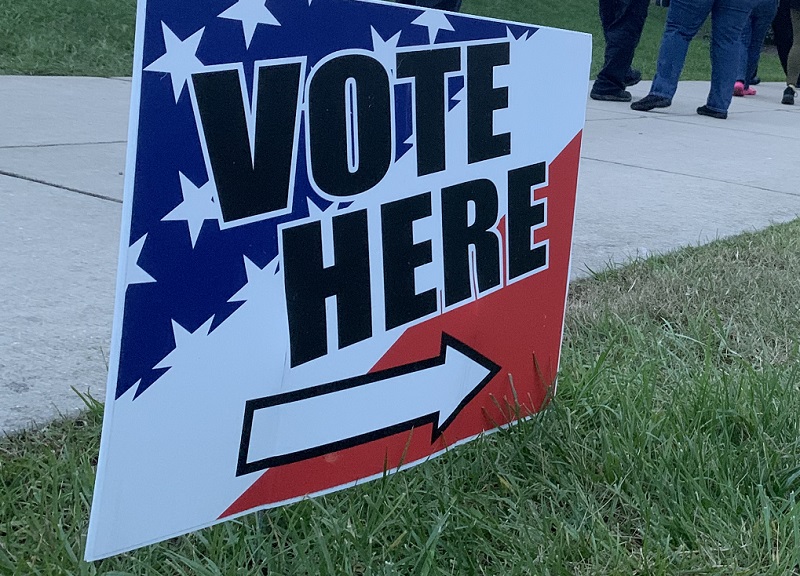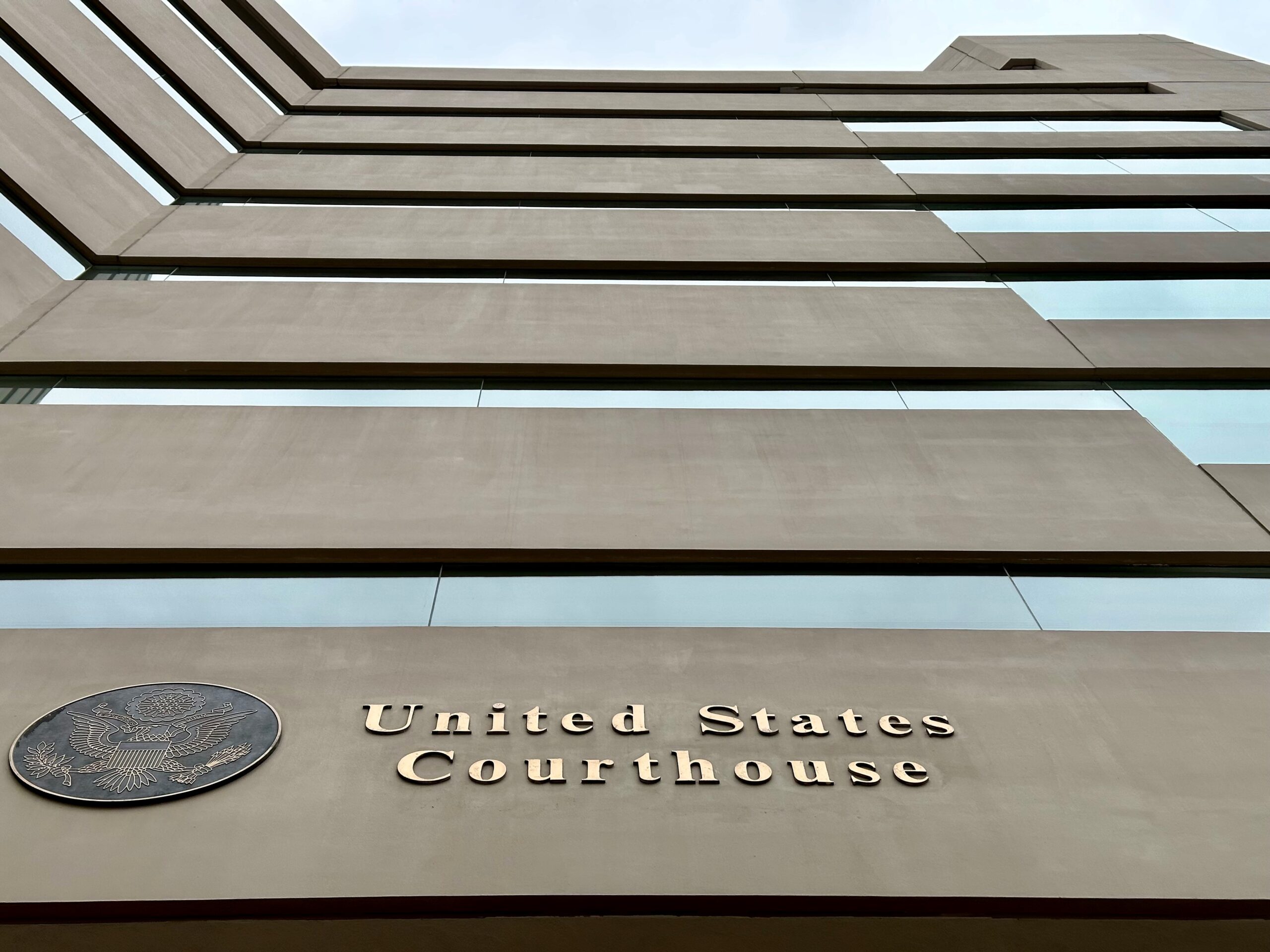Raft of Election Reform, Voting Access, Vacancy Filling Changes Proposed

Maryland lawmakers are planning wide-ranging election reforms during the 2021 legislative session, including requiring special elections for filling vacant House and Senate seats and expanding ballot access for incarcerated voters.
At a Tuesday afternoon House Ways and Means Committee hearing, lawmakers outlined some of their election-related bills. Many of the proposals, such as an attempt to improve access to voting materials for persons in jail, were offered during the 2020 legislative session, but failed to advance when legislators went home early due to the COVID-19 pandemic.
Other measures long predate the COVID-19 pandemic, including a renewed push to change how vacancies in the General Assembly are filled.
Ensuring ballot access for incarcerated voters
The General Assembly voted in 2015 to expand voting rights for formerly and currently incarcerated Marylanders. But advocates say the state’s incarcerated population still struggles with access to ballots and voting materials.
Maryland law allows residents who are awaiting trial or serving time for a misdemeanor to vote. It also restores voting rights to residents who were convicted of a felony but have served their sentences.
Yet voting rights advocates say many eligible incarcerated voters aren’t aware of their rights and don’t have adequate access to ballots and educational materials at Maryland correctional facilities.
“Restoring the right to vote isn’t the same as enabling people to exercise that right,” Janet Millenson, a member of the League of Women Voters of Maryland’s voter service team, said during the hearing. “It’s like sending someone a gift card when they have no way to redeem it.”
House Bill 222, sponsored by Del. Jheanelle K. Wilkins (D-Montgomery), would require elections and corrections officials to get information to eligible voters who are incarcerated in Maryland.
State election officials would have to do more to inform incarcerated individuals about their voting rights, including providing incarcerated individuals instructions on how they can cast a ballot, at least 30 days prior to the voter registration deadline for an election.
Wilkins’ proposal would also require election officials to “provide frequent opportunities for eligible voters to register to vote and vote; and provide for the timely return of voter registration applications,” according to an fiscal and policy that accompanies her bill.
The Maryland Department of Public Safety and Correctional Services would be required to give a voter registration application and information about voting rights to every individual released from any state or local correctional facility. DPSCS would also be required to post information about voting rights on their website, and in parole and probation offices.
Nicole Hanson-Mundell, executive director of Out For Justice, was among advocates who worked with election officials to expand ballot access for incarcerated individuals during the 2020 General Election. She said it’s important that eligible incarcerated voters can actually access ballots.
“We can pass laws all day, but if we are not ensuring that these laws are implemented, it’s almost like we’re wasting our time,” Hanson-Mundell said.
A similar bill was sponsored by Sen. Christopher R. West (R-Baltimore County) and Del. Nick J. Mosby (D-Baltimore City) during the 2020 legislative session. It passed the House last year but faltered in the Senate in the abbreviated session.
According to a policy analysis, the bill would cost state and local governments at least $358,833 in the fiscal year 2022.
Special elections
With a large portion of the General Assembly having first taken their seats by appointment rather than election, Del. David Moon (D-Montgomery County) renewed a push to require special elections for legislative vacancies.
Currently, political parties’ local central committees nominate a replacement when a seat is left vacant. Then Maryland’s governor appoints the replacement. Moon’s bill wouldn’t change that, but would guarantee a special election to fill the seat, soon after the temporary appointment.
Moon’s bill requires that, if vacancy in the Senate or House occurs at least 55 days before the candidacy filing deadline for the regular statewide primary and general elections held in the second year of the term, Maryland’s governor would have to declare special primary and general elections for a successor.
Moon emphasized that the bill doesn’t cut central committees out of the process, but rather ensures that voters have a say in who fills the vacancy sooner rather than later.
The bill is similar to a bipartisan effort that passed the Senate last year, but didn’t move to a vote in the House Ways and Means committee.
The bill has mixed support. Some organizations, such as Common Cause Maryland, support special elections, but others say the bill doesn’t go far enough. Cristi Demnowicz of Represent Maryland called the bill a “misleading and unnecessary step,” since party central committees would still nominate a replacement.
And Del. Darryl Barnes (D-Prince George’s County), the chair of the Maryland Legislative Black Caucus, said central committee nominations have actually improved the General Assembly’s diversity.
“I’ve seen more and more Black members serving as a result of the appointment process,” Barnes said. “I’ve seen more and more women get appointed. This appointment process promotes diversity.”
Joanne Antoine, executive director of Common Cause Maryland and a supporter of Moon’s bill, said relying on party central committees to promote diversity is a bad idea.
“A lot of times there is no actual regard for diversity,” Antoine said. “There really is no guarantee in this flawed process that the central committees are going to make diversifying the General Assembly a priority. We instead should be looking at ways we can eliminate barriers to running for office.”
Other reform efforts
Other standout election bills include efforts to ban “faithless electors” and changing how members of the Maryland State Board of Elections are selected.
“Faithless electors” refers to members of the Electoral College who cast their electoral votes for a candidate who did not win the majority vote in their state. And they are few and far between. But Del. Dana M. Stein (D-Baltimore County) wants to ensure that Maryland’s electors follow the states’ popular vote.
His bill would require that electors pledge to cast their votes “in a manner consistent with the party or unaffiliated presidential candidate which nominated them for elector.”
Stein’s bill would create alternates for each elector. If an elector “refuses to present a ballot, presents an unmarked ballot, or presents a ballot marked in violation of their pledge” that elector would be required to immediately step down and be replaced.
Del. Julian Ivey (D-Prince George’s County) wants to overhaul how members of the Maryland State Board of Elections are chosen. The five-member board is chosen by Maryland’s governor, but Ivey wants to transfer that power to Maryland’s speaker of the House and Senate president.
Del. Terri L. Hill (D-Baltimore and Howard counties) is sponsoring a bill that would expand training for election judges to include more information about how to accommodate elderly voters and voters with disabilities.
“If someone needs accommodations, they should know when they arrive at the site what is available and not have to ask or wonder,” Hill said.
Other efforts to improve access to voting include a bill that would expand a law that allows voters paid time off to vote if they don’t have time to do so otherwise. That bill, sponsored by Del. Julie Palakovich Carr (D-Montgomery), would extend that provision to include early voting rather than only Election Day voting.
The bill would also change the language of the current law, which covers employees who claim to be registered voters, to include all employees.




 Creative Commons Attribution
Creative Commons Attribution